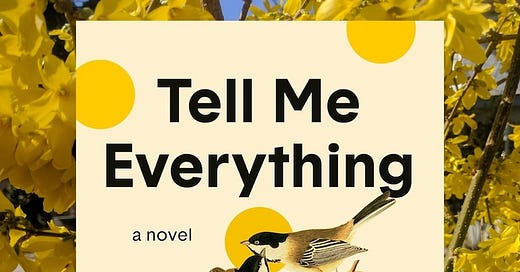Don't Show, Tell(Me Everything)
On Elizabeth Strout's subversiveness, charting constellations, loneliness and love, and how Alice Munro is the ghost of TELL ME EVERYTHING
In my experience of working with writers on fiction manuscripts, writers of all levels of proficiency, on drafts from first to nearly polished, I’ve never encountered a story that begins as wrongly as Tell Me Everything, the latest by Elizabeth Strout, she of the Olive Kitteridge, Oprah’s Book Club, Pulitzer Prize-winning fame:
“This is the story of Bob Burgess, a tall heavyset man who lives in the town of Crosby, Maine, and he is sixty-five years old at the time that we are speaking of him. Bob has a big heart, but he does not know that about himself; like many of us, he does not know himself as well as he assumes to, and he would never believe he had anything worthy in his life to document…”
Humour me for a moment while I dare to suppose what I’d write in the margin of such a manuscript crossing my desk. Something along the lines of, Elizabeth, surely this paragraph is unnecessary, because once the reader starts reading, they’ll know what this book is about—you don’t have to make it so plain.
I’d likely suggest that Elizabeth go back to her library and review other books with iconic first lines as inspiration to write something that packed more of a punch.
And no doubt, I would be employing the most cliched tool in my tool-belt, those three magic words, the number one rule of learning to write:
Show, don’t tell.
Keep reading with a 7-day free trial
Subscribe to Pickle Me This to keep reading this post and get 7 days of free access to the full post archives.




